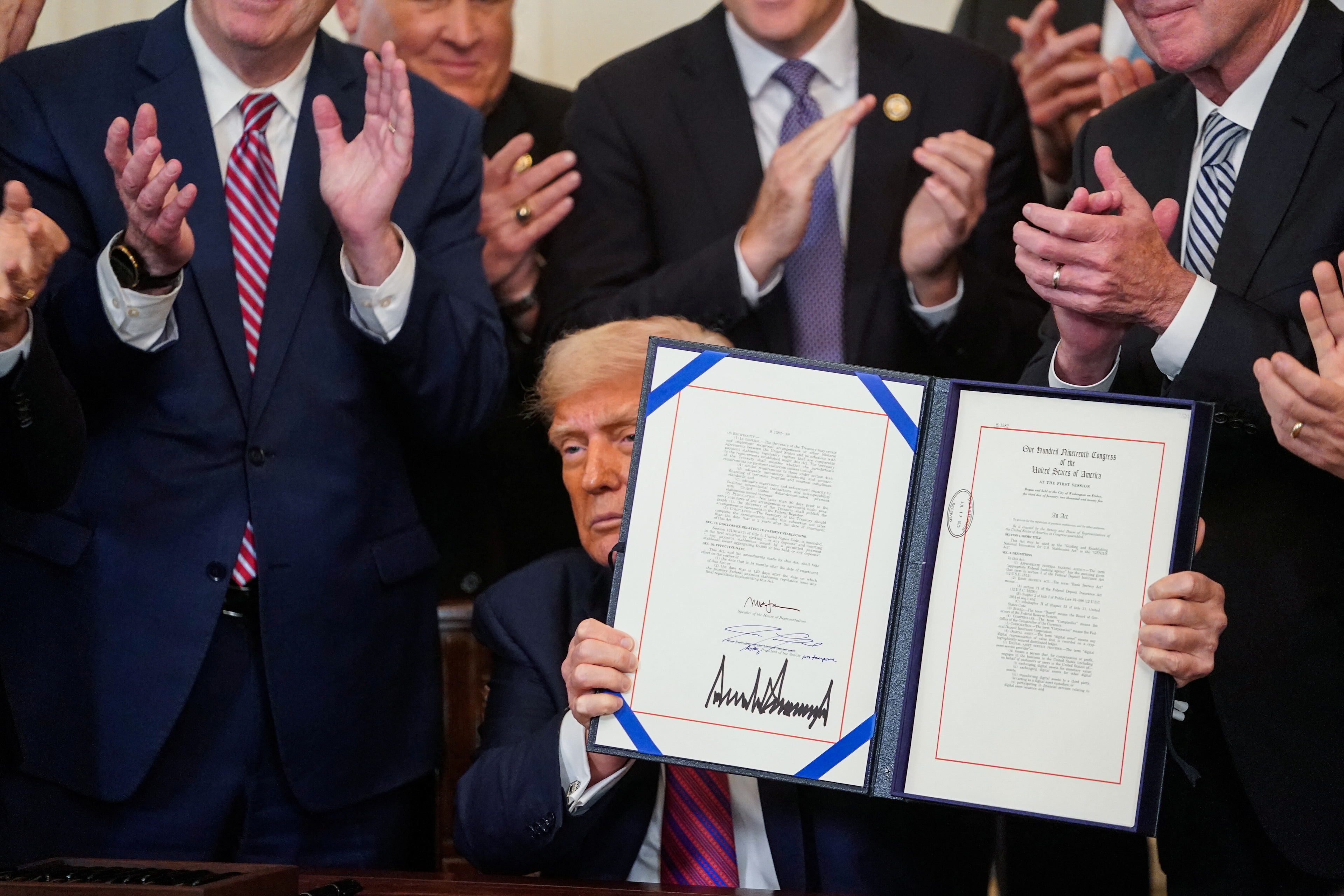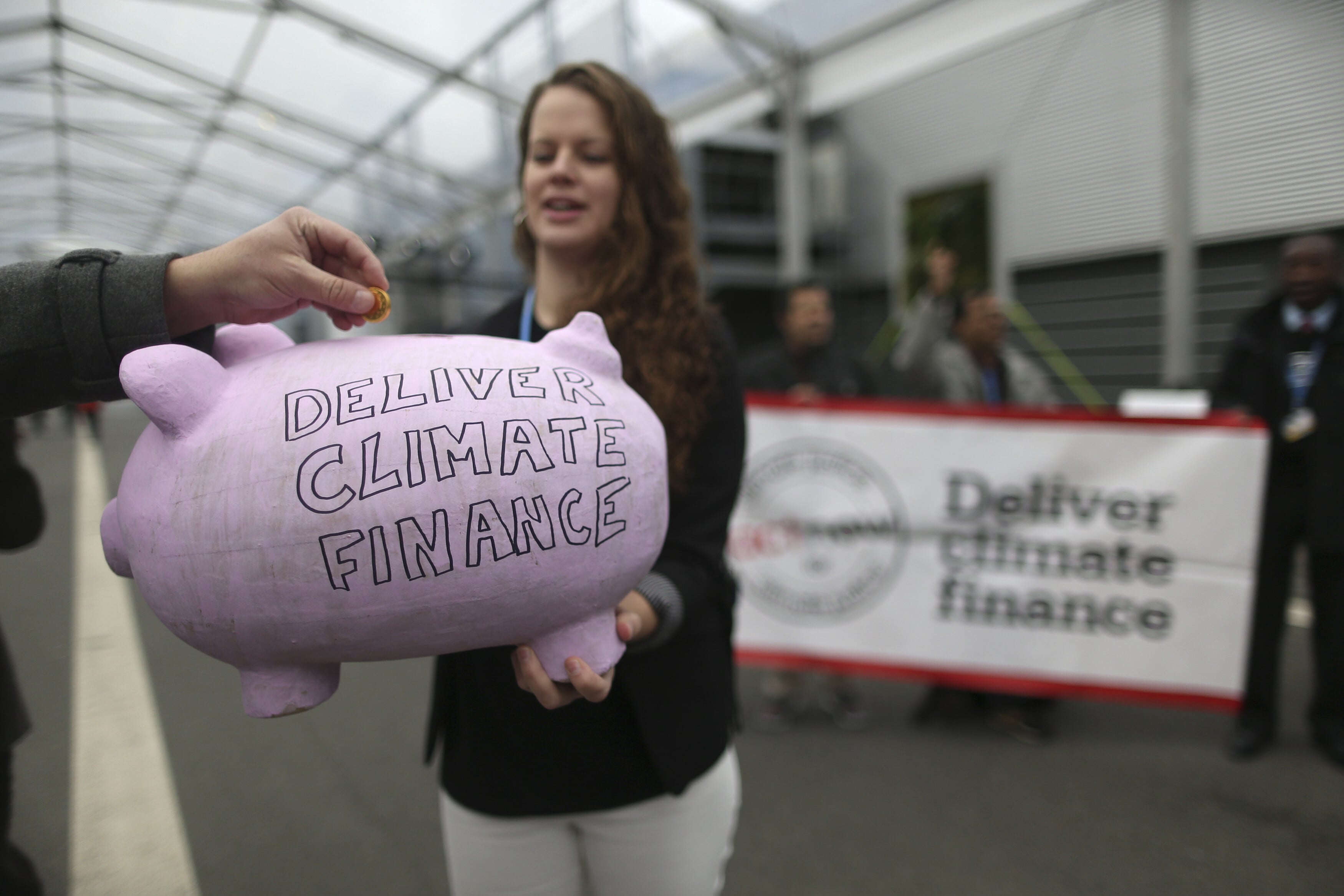US may already be in recession, and other economics stories to read this week
The US may already be in recession, according to a closely watched indicator.
Image: REUTERS/Mike Segar
Listen to the article
- This weekly round-up brings you the latest stories from the world of economics and finance.
- Top economy stories: US may already be in recession; Faster inflation in Japan may not spur looser monetary policy; China posts lower-than-expected Q2 growth.
1. Key US index points to recession
A 15th monthly fall in a row for an index tracking US business cycles indicates that the world's largest economy may already be in recession.
The Leading Economic Index, a measure that anticipates future economic activity, declined by 0.7% in June to 106.1 following a drop of 0.6% in May. This marks the longest streak of decreases since the lead-up to the 2007-09 recession. The decline in June exceeded the median expectation of economists in a Reuters poll for a 0.6% decrease.
“Taken together, June’s data suggests economic activity will continue to decelerate in the months ahead,” says Justyna Zabinska-La Monica, Senior Manager of Business Cycle Indicators at The Conference Board, which puts together the Leading Economic Index.
The Conference Board believes the US is heading for a "shallow recession" from the third quarter of this year to the first quarter of 2024.
"Elevated prices, tighter monetary policy, harder-to-get credit, and reduced government spending are poised to dampen economic growth further," Zabinska-La Monica says.
The contraction in the Leading Economic Index has accelerated this year, with a 4.2% drop over the past six months compared with a 3.8% fall in June-December 2022.
The latest data, including slowing inflation figures, add to speculation that the US Federal Reserve may be coming to the end of its aggressive rate hiking cycle. Policy-makers will meet on 25-26 July to decide on interest rates.
2. Faster inflation in Japan may not spur looser policy
Japan's headline inflation rate rose in June but core inflation slowed, easing any pressure on the Bank of Japan (BOJ) to tighten its monetary policy stance.
The consumer price index (CPI), which excludes fresh food, rose by 3.3% on the year in June. This was up from 3.2% growth in May, mainly because of higher utility bills, leaving the CPI well above the BOJ's 2% price stability target.
But an index that excludes fresh food and fuel prices slowed in June. It rose 4.2% from a year earlier, down from a 4.3% gain in May, suggesting commodity-driven price pressures may have peaked.
The latest data from the world's third-largest economy – combined with last month's slowdown in services price growth – may signal to policy-makers that wage pressures have yet to build up enough to warrant an imminent tweak to the country's ultra-loose monetary stance.
"Cost-push inflation is finally beginning to peak out," Toru Suehiro, Chief Economist at Daiwa Securities, told Reuters. "We'll likely see inflation slow in the coming months, which would allow the BOJ to keep policy steady for the time being."
The BOJ is expected to keep its policy unchanged when it meets next week, according to more than three-quarters of economists polled by Reuters.
How is the World Economic Forum improving the global financial system?
3. News in brief: Stories on the economy from around the world
China's economy grew less than forecast in the second quarter as demand slowed domestically and globally. GDP rose 6.3% on the year, far below a forecast of 7.3%, putting pressure on policy-makers to boost economic stimulus measures.
The Eurozone did not enter a technical recession in the first quarter, according to revised numbers from EU statistics agency Eurostat. They show that Eurozone growth was flat in the period, rather than contracting 0.1% on the quarter.
British inflation slowed more than expected in June, hitting its lowest level in over a year at 7.9%. The news will reduce the pressure on the Bank of England to continue with its current pace of interest rate rises.
Economic growth slowed in South Korea in April-June. Weaker exports dented Asia's fourth-largest economy, as high interest rates hit consumption.
Turkey's central bank has raised its policy rate by 250 basis points to 17.5% and says more monetary policy tightening is on the way. Inflation is already facing upwards pressure from recent tax hikes.
India needs economic growth of 7.6% year on year for the next 25 years to turn it into a developed nation, according to its central bank. Per capita income of around $2,500 must rise to over $21,664 by 2047 for India to class as a high-income country by World Bank standards.
Accept our marketing cookies to access this content.
These cookies are currently disabled in your browser.
4. More on finance and the economy on Agenda
What are green banks and how are they able to resolve both a lack of affordable housing and climate change at once? It's because they function less like traditional banks and more like investment funds with a mission to promote sustainability.
Slowing economic activity is coinciding with some of the worst climate impacts of our time. But now is the time to accelerate impact venture capital, as tech and innovation can help solve crucial climate-related problems.
Increasing water scarcity also means investors need to be prepared to take risks on water tech startups. But governments need to back this up with supportive regulations to help these startups scale up their solutions.
Related topics:
More on Financial and Monetary SystemsSee all
Sandra Waliczek and Harry Yeung
July 29, 2025
Pranidhi Sawhney and Adam Skali
July 29, 2025
David Carlin and Sourajit Aiyer
July 28, 2025
Veronica Frisancho
July 22, 2025
Jesus Serrano
July 14, 2025





